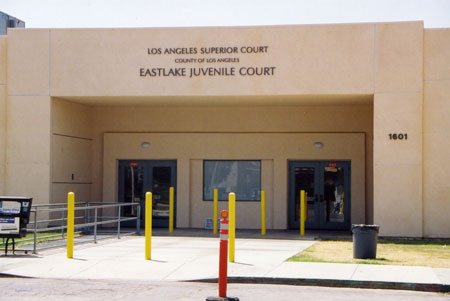
Earl Ofari Hutchinson
The silence in the courtroom was deafening. Everyone in the court and that included this writer was riveted by the impassioned, tear filled plea from the mother of Eron Michael Mull. Jocelyn Mull had asked this writer to accompany her to court to see for myself how the juvenile system had gone badly awry in handling the killer of her son.
Mull was an eighteen year old African-American gunned down in a cross fire between two suspected gang rivals last January outside an after hours party near Hollywood. Mull had no gang involvement, was a highly talented musician, and had scholarship offers to several universities. The outpouring of grief for Mull was just as heartfelt. His funeral drew more than 2000 students, teachers and friends. He was Mull’s only son. Mull made the plea for remembrance within arms length of the young man who confessed to the murder.
Mull could easily have been another of the legions of nameless, faceless young black victims of chronic murder violence that has plagued L.A. and other big cities. His mother’s teary eyed court plea for her son likely would have drawn a momentary touch of public attention, sympathy and then just as quickly been forgotten. But this was different.
Mull’s plea was not solely a plea from an aggrieved mother for the remembrance of her dead son. It was a plea for justice. Mull’s killer did not come to court from a jail cell but from his home. He was not in court to be sentenced but for the court to determine if or when he would be tried as an adult. At the close of the hearing, he walked out of court and went back home where he has been detained since June. The home detention triggered Mull’s rage and plea for justice. Mull’s killer did not commit a petty, non-violent crime but potentially a first degree murder. He has suspected gang ties and is accused of prior handgun brandishing. In many states, including California, teens much younger than Mull’s killer who have been charged with murder and accused of prior gun use are routinely jailed for long stretches in juvenile or adult jails, tried as adults, convicted, and receive lengthy sentences. In the past, some have received death sentences and in a few cases been executed. The Supreme Court narrowly outlawed juvenile executions in March 2005.
Mull’s killer would not suffer that fate and that’s a good thing. But that still doesn’t ease the personal pain of Mull’s mother and the deep sense that a grievous legal wrong has been committed by the court’s allowing her son’s confessed killer to remain out of jail. And then adding to her anguish by handling the case with kid glove, snail paced lethargy.
This is hardly unique. According to reports from multiple state agencies, and a ten year Longitudinal Analysis of Juvenile Detention programs by the Florida Department of Juvenile Justice, since the late 1980s home detention for juveniles while awaiting trial or a court disposition of their case and who were accused of even serious felony offenses has sharply increased. This is in part a cost saving measure, and in part a way to reduce overcrowding in America’s bulging jails and juvenile detention centers. Juveniles sentenced or confined to home detention wear ankle bracelets that emit an electronic signal sent to a remote command center whenever an offender ventures outside the home or other confined area set by the courts. In theory if the signal goes off that’s a potential violation, if it’s verified than police are notified and the offender can be arrested.
But there’s a giant loophole. Police are often not notified if a juvenile is under home detention and are only aware of it when a detainee violates home detention rules and they make an arrest. Home detention violations are not uncommon. There have been frequent reports of juveniles committing or accused of crimes while supposedly confined to their homes.
Still, home detention is a sensible and humane penal method for dealing with non-violent, low risk juveniles and adults. But Mull’s killer hardly fits that bill.
Jocelyn Mull is no lock em up and throw away the key crusader. She is a dedicated educator and community activist. She’s well aware of the well-documented gaping racial disparities in the juvenile justice system. Young black males are more likely than young whites who commit violent crimes to be jailed, too languish in preventive detention, be tried as adults, convicted and then warehoused in adult prisons for long sentences.
Mull’s sole concern is that the tiny cracks that permit young men who kill either through legal sloppiness, a technicality, laxity, or expediency to at least for a time evade justice be filled. She is campaigning to prevent the use of house detention for violent felony cases. Until that change happens, the tacit message is that when young blacks kill other young blacks, black life is deemed cheap and devalued. In her emotional plea Mull repeatedly noted that her son’s killer would spend the holidays at his home. Her son won’t. And that’s not justice.
Earl Ofari Hutchinson is an author and political analyst. His forthcoming book is How Obama Won (Middle Passage Press, January 2009). http://www.learnhowobamawon.blogspot.com
.jpg)

No comments:
Post a Comment